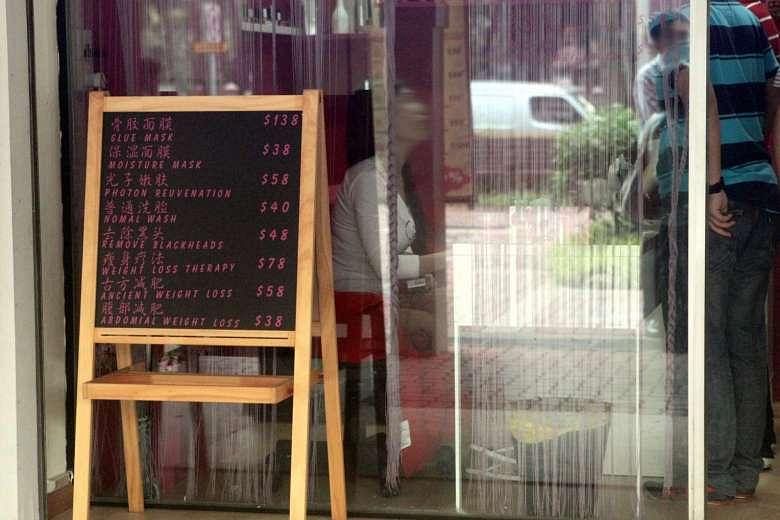Aggressive sales tactics by beauty salons topped complaints in the industry.
These include beauticians criticising customers' looks or refusing to give them back their belongings - all to pressure them into buying products or services. More than 90 per cent of the complaints involved businesses not accredited by the Consumers Association of Singapore (Case), the national consumer watchdog for fair practices.
Out of the 1,525 beauty complaint cases lodged with Case between 2011 and last month, only 8.5 per cent involved businesses in its CaseTrust scheme. Case yesterday said it handled 485 cases involving complaints about beauticians' sales tactics during the same period.
Many pressure sales pitches occurred when the consumer was undergoing a beauty treatment or was otherwise vulnerable. The beautician would make a sales pitch for hours on end, mentally exhausting the customer until she caved in.
Unsatisfactory services made up 20 per cent of beauty complaints lodged with Case in the period, making this the second most contentious area. A 52-year-old retiree, who gave her name only as Ms Lu, said she was persuaded to fork out more than $6,000 for an eyebrow and lip treatment package with a spa and wellness firm, whose sales people approached her when she was at the supermarket.
But after a session of lip embroidery - a process which tints the lip semi-permanently - her lips swelled up for three days.
"I couldn't take the pain," she said. However, when she tried to change the services in her package, the firm's boss refused and even tried to pressure her into signing up for a new package. She had to seek help from Case to settle the dispute.
Case receives more than 1,000 inquiries and complaints every year about the beauty industry, which, for the past five years, has ranked among the top five industries in terms of complaints.
It currently has 643 businesses under its CaseTrust spa and wellness accreditation scheme, which is not compulsory.
Case executive director Seah Seng Choon said many businesses choose not to get accredited because the criteria are stringent. They have to comply with policies such as pre-payment protection, a five-day cooling-off period and a "no selling" rule in the treatment room.
Case will be holding a free beauty fair on Saturday next week at the NTUC Centre from 10am to 1pm to educate consumers on what to look out for when buying beauty products or services.


